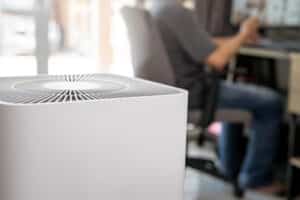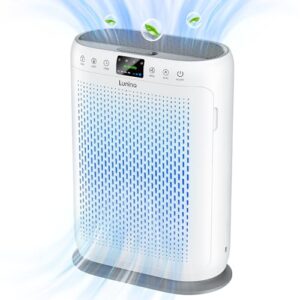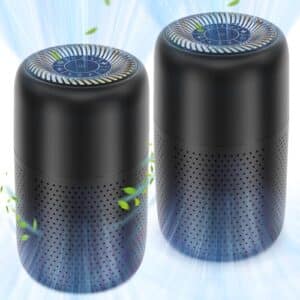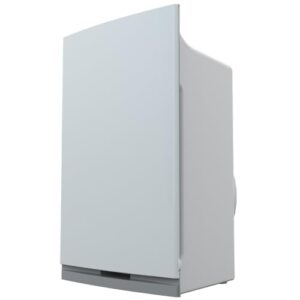Can Air Purifiers Reduce the Risk of Respiratory Illnesses like Asthma and Allergies?
Key Takeaways
- Studies on the effectiveness of air purifiers in reducing asthma symptoms have yielded mixed results, with some suggesting effectiveness, especially in children, while others indicate they may be less effective than regular air filters.
- Air purifiers can decrease allergy symptoms by reducing indoor air pollution and allergens, potentially reducing clinic visits for people with asthma.
- While air purifiers can help improve indoor air quality and decrease lung inflammation, not all air purifiers are created equal. It’s important to choose ones with HEPA filters and avoid those that generate ozone, which can worsen asthma symptoms.
Air purifiers have been touted as a solution to improve indoor air quality and reduce the risk of respiratory illnesses such as asthma and allergies. But do they really live up to the hype? Let’s delve into the available research and scientific evidence to find out.
What the Studies Say
Studies examining the effectiveness of air purifiers in reducing asthma symptoms have yielded mixed results. Some studies suggest that air purifiers can be effective, especially in children, while others indicate that they may be less effective than regular air filters. Factors such as the airflow rate of the purifier, filter design, size of allergen particles, and the location of the purifier in the home can influence their effectiveness.
On the other hand, when it comes to allergies, the consensus seems to be more positive. Air purifiers can decrease allergy symptoms by reducing indoor air pollution and allergens. They can remove particulate matter and support improvements in allergy symptoms, potentially reducing clinic visits for people with asthma.
Improving Indoor Air Quality
Air purifiers work by filtering out pollutants, allergens, and irritants from the air, improving indoor air quality. They can help lower the medication burden for asthma patients and reduce the effects of secondhand smoke. By removing these airborne particles, air purifiers can decrease lung inflammation, leading to a decrease in asthma symptoms.
However, it’s important to note that not all air purifiers are created equal. Those that generate ozone should be avoided, as ozone can worsen asthma symptoms. Choosing air purifiers with HEPA filters, which are designed to capture even the smallest particles, can be a good option.
The Impact on Respiratory Infections
With the recent COVID-19 pandemic, there has been interest in whether air purifiers can help prevent respiratory infections. A systematic review of studies conducted between 1970 and 2022 found no strong evidence that air treatment technologies, including air purifiers, decrease the risk of respiratory transmitted illnesses like COVID-19. However, portable HEPA air cleaners, when used alone, have been found to reduce exposure to respiratory aerosols by up to 65%. When combined with universal masking, this reduction can be as high as 90%.
The Need for Further Research
While there is some evidence to support the use of air purifiers in reducing asthma symptoms and improving indoor air quality, further research is needed to fully understand their effectiveness. Long-term data on the reduction of respiratory illnesses such as asthma or chronic obstructive pulmonary disease (COPD) is still lacking.
It’s also important to consider that air purifiers should not be seen as a standalone solution. They should be used in conjunction with other preventive measures, such as proper ventilation and regular cleaning, to maximize their benefits.
Related Websites:
- Healthline – Air Purifier for Asthma
- Verywell Health – Air Purifier for Asthma
- Medical News Today – Air Purifier for Asthma
- Healthline – Air Purifier for Allergies
- Medical News Today – Air Purifier for Allergies
- SciTechDaily – Do Air Purifiers Help Prevent Respiratory Infections like COVID-19?
- CDC – Effectiveness of Air Purifiers in Reducing Exposure to Respiratory Aerosols
- Cleveland Clinic – Can Air Purifiers Improve Lung and Heart Health?
FAQs:
Q: Can air purifiers reduce the risk of respiratory illnesses like asthma and allergies?
Yes, air purifiers can help reduce the risk of respiratory illnesses like asthma and allergies. They work by removing pollutants and allergens from the air, creating a cleaner and healthier indoor environment.
Q: What are the different types of air purifiers available in the market?
There are several types of air purifiers available, including HEPA filters, activated carbon filters, ozone generators, and UV germicidal lamps. Each type has its own method of air purification and is designed to target specific pollutants.
Q: Are air purifiers effective in reducing asthma and allergy symptoms?
Yes, research studies have shown that air purifiers can be effective in reducing asthma and allergy symptoms. They help remove common triggers such as dust mites, pet dander, pollen, and mold spores, providing relief to individuals suffering from these conditions.
Q: What factors should I consider when choosing an air purifier?
When choosing an air purifier, consider the key features such as the type of filter used, the coverage area it can handle, noise levels, and energy efficiency. Additionally, consider your specific needs and circumstances to ensure you select an air purifier that meets your requirements.
Q: Are there other measures I can take to improve indoor air quality?
Yes, in addition to using air purifiers, it is important to focus on proper ventilation, regular cleaning, and avoiding specific triggers and allergens. Maintaining a healthy indoor environment also includes keeping humidity levels in check and ensuring adequate airflow.






